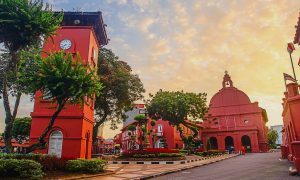We may not realise it, but we are all lifestyle migrants. By making the decision to move our lives to Malaysia, we have joined a swelling global community of “residential tourists,” émigrés who flee for neither security nor economic purposes, but the lure of a better, or perhaps just different, life.
Lifestyle migration has been the focus of a recent study conducted by a team of experts – Professor Karen O’Reilly and Dr Kate Botteril of Loughborough University, Dr Maggy Lee and Leona Li Ngai Ling of the University of Hong Kong, and Professor Rob Stones of Essex University – seeking to understand the motivations, experiences, and outcomes of lifestyle migration in East Asia.
Research was collected via a survey and through interviews, and participants numbered more than 200, living in Thailand and Malaysia. The preliminary findings of the survey have now been compiled, and Professor Karen was keen to share the results with members of the expat community who had contributed to her research. This research gives expats the chance to understand the motivations of others and gain an understanding of the group they find themselves in. Many of the results will be affirmation of what expats already believe, and reassurance that most share similar values and interests, and move their lives around the world to seek similar opportunities.
Arrival – while expats’ homelands covered a range of countries, more than half came from the UK and most had lived in other countries, averaging 3-4 countries each.
The earliest recorded “arrival” was in 1944, and the time people had lived away from their homeland ranged from just a few months to 60 years, with the average amount of time spent away from home sitting at 15.5 years.
Why? – a variety of reasons were given for what triggers the move, with some of the most popular including the food, the culture, the promise of a “simple life,” the prospect of a challenge, or for work. Reasons for leaving the home country included escaping the weather and the appeal of a lower cost of living.
Activities – many respondents listed social clubs as being activities they attended regularly, with the most popular being expat associations. The top two social activities were playing sports or meeting up with friends.
People – when listing the nationalities of people they spent most time with, participants collectively mentioned 40 different nations, although colleagues tended to be British or native (Thai or Malaysian).
Distant Family – 80% of respondents were visited by friends or family in the last year, and most use Skype or email to keep in touch on a weekly basis, with phone calls made less frequently.
Quality of Life – for almost everyone, good health was seen as very important for a good quality of life. Other key factors were access to good food and the cost of living, while 95% rated happiness as very important. When invited to comment, most people praised the quality of their lives, with the few complaints being of corruption, crime, and the irritating assumption (by locals and other expats) that they were wealthy purely because they were expats.
Settling In – for most people, settling in their new home was easy. The trickiest aspects were seen to be learning the local language and the political situation. More than half of people own their own property, and all except four liked where they live.
Advice – more than half of respondents had actively encouraged others to migrate, and advice offered included being aware that living in a place is not the same as a holiday, and suggesting a trial period in the new country before committing.
About The Participants
In all, 112 people responded to the survey: 61 males and 51 females, ranging in age from 23 to 89, with an average age of 52. More than three-quarters were married or living with a partner and the participants possessed a variety of permits and visas, with the majority of people on MM2H or retirement visas.
The majority of the participants had completed a university degree and were now technically retired, although almost everyone still worked in some capacity.
The Next Step
The team will now proceed in analysing their data and assessing the results of their interviews in order to build a better understanding of this relatively new practice of emigrating for reasons of comfort rather than security. The results of their analyses will be available online in the coming months.
We expats are, it seems, an interesting lot, and this study is a good reminder that we are fortunate enough to be able to seek a better life in a country of our choice.
———————————————————————————————————
For more information on the project or to track the results, visit www. lifestylemigration.wordpress.com.
———————————————————————————————————
Source: The Expat June 2013
What are your thoughts on this article? Let us know by commenting below.No registration needed.
"ExpatGo welcomes and encourages comments, input, and divergent opinions. However, we kindly request that you use suitable language in your comments, and refrain from any sort of personal attack, hate speech, or disparaging rhetoric. Comments not in line with this are subject to removal from the site. "

















